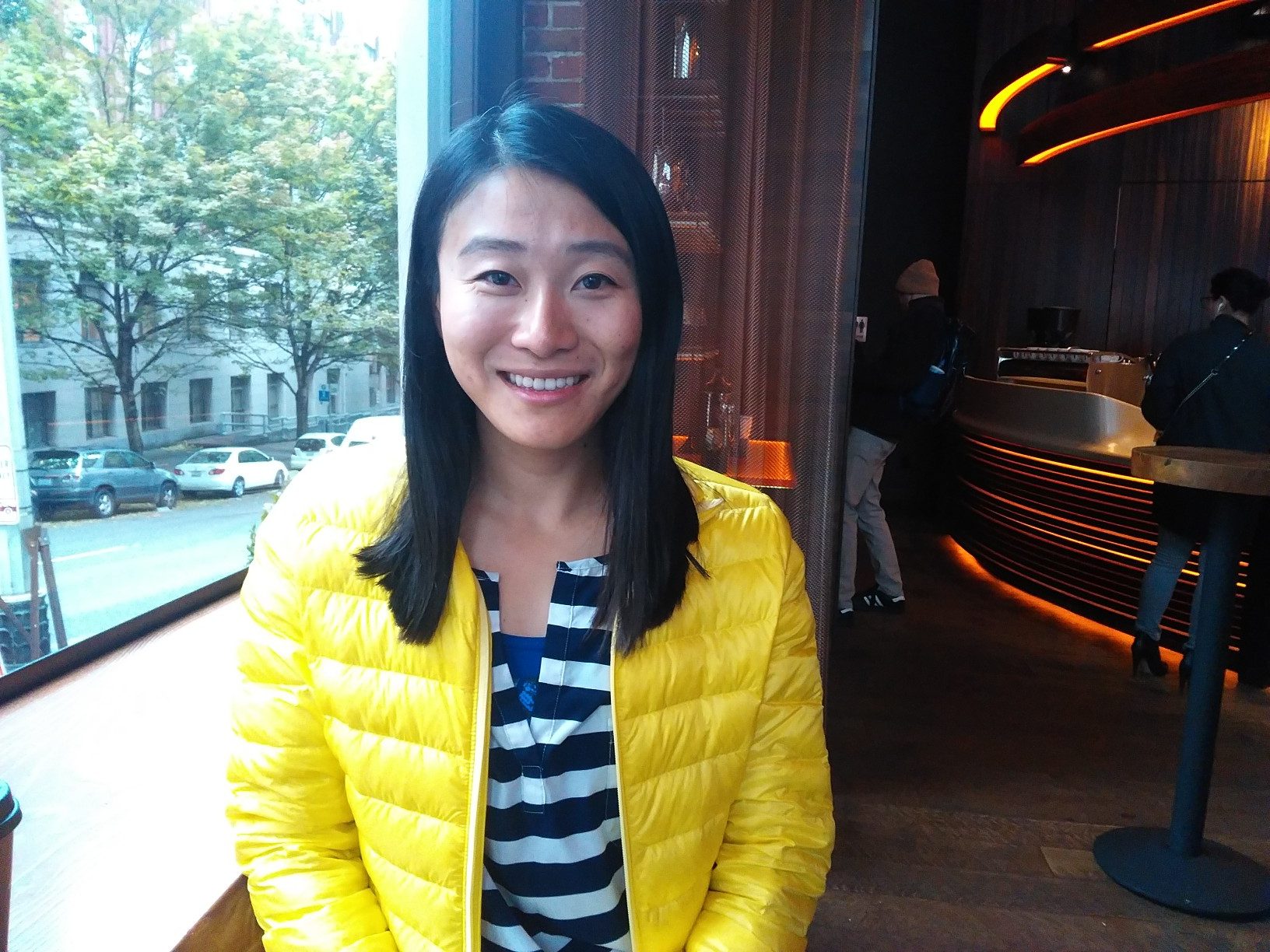By Chris Kenji Beer
Northwest Asian Weekly

Yifan Zhang
Yifan Zhang was born in Nanjing, China, and lived there for seven years before coming over to and landing in the United States. She attended grade school and high school in Muncie, Indiana. Like many Asians growing up in the Midwest, she was the only Asian in her class.
“I was very accustomed to being the only Asian in the room,” said Zhang. “It really helped me integrate into American society.”
Zhang said her life really started to bloom as a teen when her family moved to Carmel, Indiana, a town that may have the highest per capita percentage of Asians in the state at 20 percent. “I felt like a super American as a teenager. I loved Carmel.” She became very involved in activities ranging from playing the flute, lacrosse, joining the debate team, and the academic Super Bowl.
From Muncie, Indiana to Harvard
Zhang was one of five fellow high school graduates from the state of Indiana to attend Harvard. Zhang met her husband Adam Stelle there and also she started her first company, Styleta, a nonprofit that collects donated clothing, sells it online, and donates the proceeds to charity partners.
“Because costs were lower than charity gift stores, we were able to make bigger contributions.“
After graduating with a degree in economics from Harvard in 2010, while still in Boston, Zhang and Stelle, cofounded Gympact, a mobile fitness app, and moved to San Francisco shortly after. Gympact gives cash rewards for hitting health goals, paid by members who don’t. “The Gympact app has motivated over 45 million in healthy activities and given out $5 million in rewards to members.”
The origins of Lofium
After a successful run in the Bay area with Gympact, the couple came up with another idea and decided to move to Seattle, in part to be closer to her in-laws. Zhang’s husband is from Tacoma. Like many home buyers today, the resourceful couple faced challenges with finding a home that suited their needs, and they ended up purchasing their first home here in the Seattle area. They soon discovered they could cover their monthly mortgage by renting a room through Airbnb. Out of this simple idea came the couple’s next venture, Loftium.
“Loftium removes the biggest obstacle facing home buyers — the down payment.” What’s the secret sauce to their business model? For one, Zhang suggests, “the mathematical formula” Loftium comes up with for its customers.
The company works with Umpqua Bank’s mortgage lending department to provide the actual home loan. Loftium then maximizes the opportunity for success with terms and conditions in their agreements to make sure the arrangement is mutually agreeable.
“The new Loftium home buyer makes their extra bedroom available for rent for 12-36 months and generally live in their home. They don’t have to live in the home, but it is ideal.”
At the same time, Loftium builds in some flexibility for their home buying customers. For one, while they must make one extra bedroom available for Airbnb renters where they split the proceeds, there is no minimum rental amount required. Loftium also allows up to three Airbnb cancellations every year.
Loftium is also flexible with customers’ credit scores, requiring just 620 to qualify.
Test market in Seattle
“Seattle is our first test market. We want to get it right in one market first,” said Zhang. With a first round of funding of $2.5 million from Draper Fisher Jarvis in San Francisco, Loftium intends to expand to three or four additional markets by mid-2018. Their criteria for which markets are ripe for Loftium’s expansion plans? “Other expensive markets,” said Zhang.
“What I’ve learned about myself is I take initiative, and I’m self-reliant; I’ve had no hand holding.” To other young aspiring entrepreneurs, Zhang said, “Never be married to one solution, or to things as they are. Don’t hesitate to throw away the status quo to find the right solution.”
As for the future, “I want to see more opportunities for women where it is not unusual for investors to treat (women) the same.” The same is true in the home buying business. Today, Zhang said men make up 70 percent of millennial homeowners. “However, that is changing,” and Zhang’s company will likely play a role in that change.
Chris can be reached at info@nwasianweekly.com.



